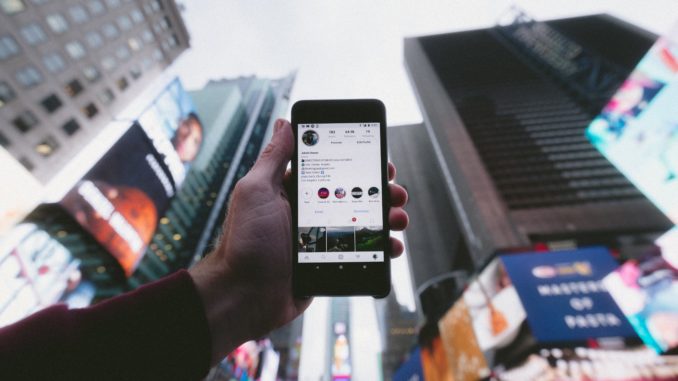
Most of you reading this probably have a complicated relationship with social media. We use it to stay in touch with friends, source inspiration and keep up with news; however, it can be all-consuming in our lives.
The same applies when it comes to social media for business. On one hand, digital marketers use it to inspire creativity, humour and engagement for clientsâ brands, and on the other, we force ourselves to switch off so that we can be present in our personal lives and connect to the people around us. For our team at Yellow Door Collective itâs all about balance, and focusing on quality content.
Now, in the age of COVID-19, a new normal has arrived. Weâre obligated to self-isolate, and so the new, predominant way we (both businesses and individuals) can connect to our broader community is by leveraging social media. Itâs the most real-time tool we have to keep each other up to date with the facts, communicate with friends and family for support, and learn new ways to cope from individuals and companies who have set a great example.
Itâs also now, more than ever, one of the main tools marketing teams have turned to in order to keep customers engaged with their products and ensure businesses keep running.
Before the pandemic spread, brands were able to rely mainly on traditional marketing strategies that were predominantly offline. According to research included in a NewsCred article, on average, 30 â 40% of marketing budget is allocated for trade show sponsorship, travel, expenses, attendance, and collateral. However, amid the fear of attending and sponsoring large events or keeping restaurants and local stores open, businesses are turning to content marketing delivered online to stay engaged with their customers.
Itâs an integrated approach that relies on a wide range of digital marketing strategies and tactics such as email, social media, SEO, and paid media to boost engagement with customers.
Here are a few examples of local brands and entrepreneurs that have reacted quickly and effectively to engage with their customers and look after their employees:
1. GG Alcock
GG Alcock is a South African marketer, author, speaker, entrepreneur at KasiNomic events, and an expert in the informal sector, has been a leading voice commenting on the impact of the lock down on informal businesses in South Africa. He has released a series of articles profiling the effect on township life and informal businesses across our country, called .
He aims to get the government to allow key food businesses in townships to trade rather than restricting them or closing them down, since these channels are critical for residentsâ food availability, and their health and safety during the lockdown.
Â
  Pilcrow & Cleaver
Pilcrow & Cleaver
This restaurant reacted swiftly by closing their doors temporarily, and are currently working on making themselves available for take-away online. Before closing the restaurant they replaced their salt & pepper pinch pots with grinders, had hand sanitiser available at all times, removed tables to limit numbers, had two booths available for isolation in the bar area, and ensured their menus were wiped down in front of customers.
Pick ân Pay
Pick n Pay mirrored Woolworths Austriaâs strategy to protect pensioners, the more vulnerable group in society, by allowing them to shop exclusively from 7am – 8am every Wednesday, before the panic-buyers stream in. They adopted this technique after a suggestion from their online community.
 Nandos
Nandos is using their classic cheeky humour to drill in the importance of maintaining hygiene to South African customers. After KFC marketed a âfinger-lickinâ goodâ campaign recently in the UK and received massive backlash for their irresponsibility, Nandos shared the following photo on their Facebook page and Twitter profile, with the caption âThe power is in our hands, wash them.â
With our ever-changing digital landscape, Coronavirus has driven businesses and individuals to ensure their marketing strategy is delivered both offline and online. Although online communication provides its own challenges, it allows brands to communicate and engage with their audience undisrupted, no matter what the situation is â as long as you have holistic marketing strategies in place.
